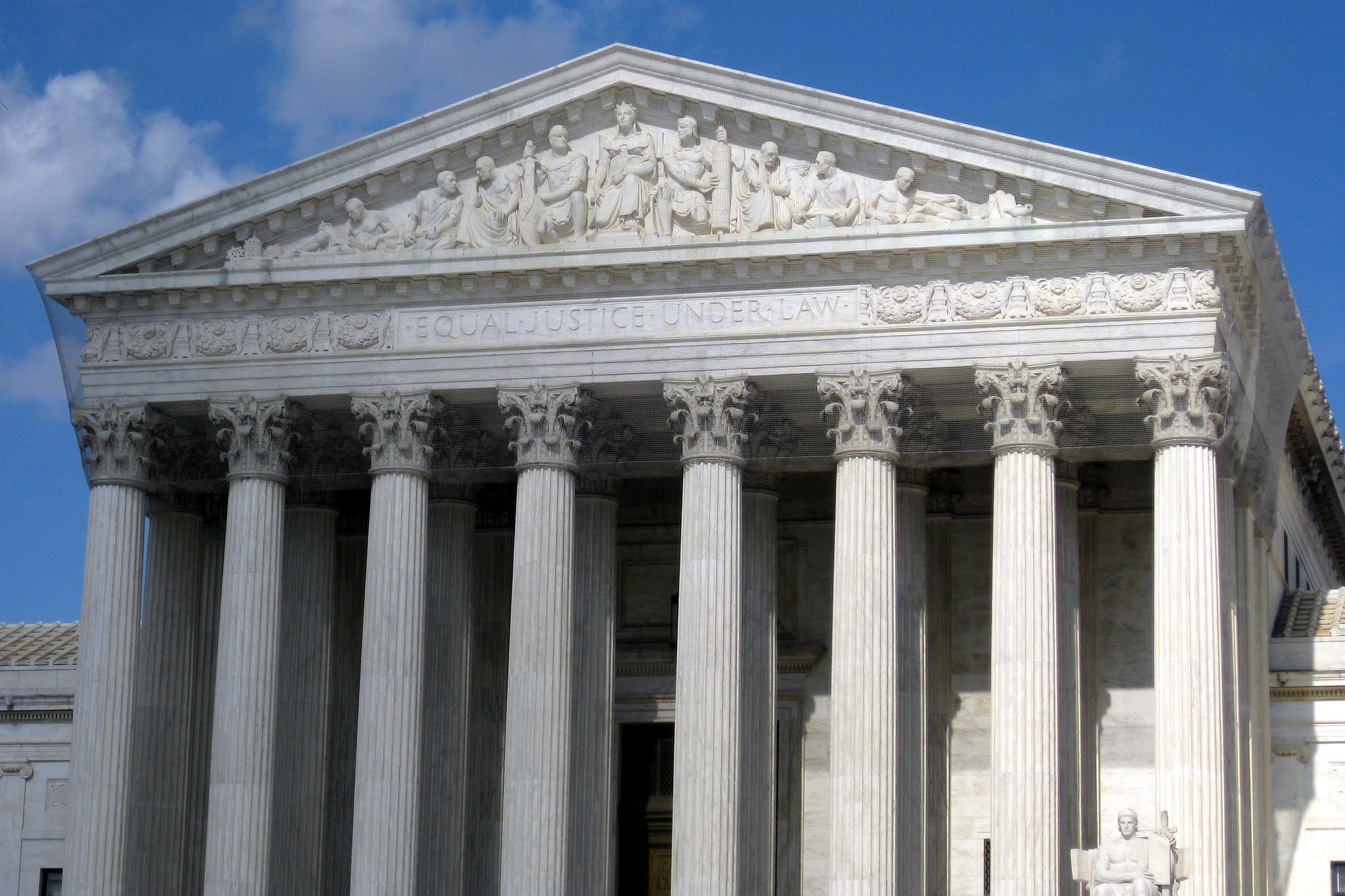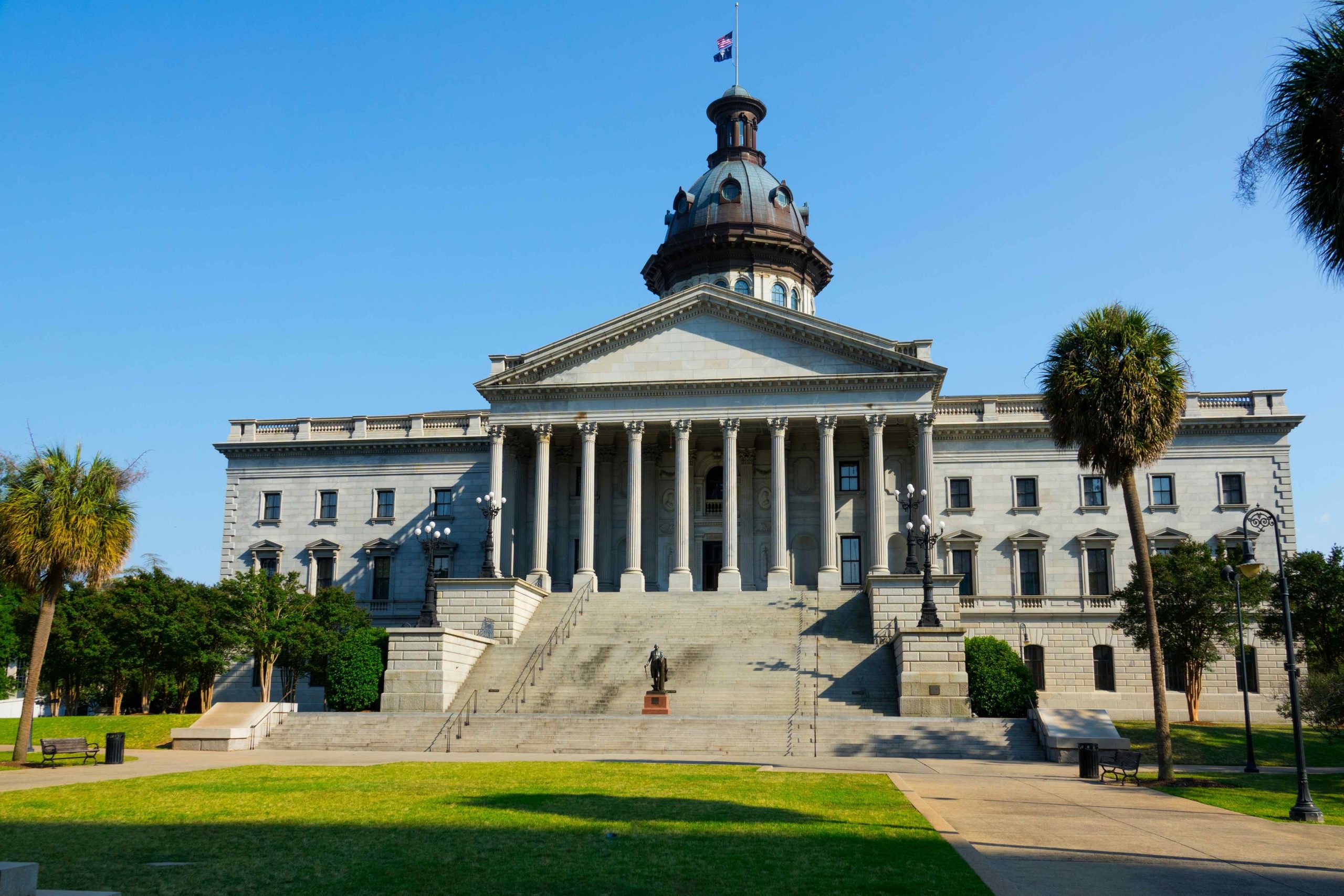Personal jurisdiction, habeas and a possible substitute case
RELIST WATCH
It appears that the two relisted petitions asking the court to decide whether laws that limit participation on women’s and girls’ sports teams based on sex assigned at birth violates the 14th Amendment and Title IX of the Education Amendments of 1972 are now being held for the transgender-care case United States v. Skrmetti, argued on Wednesday.
And the court denied review in the case asking the court to weigh in on whether the Fifth Amendment’s takings clause applies when the government destroys property during necessary police activity, with Justice Sonia Sotomayor (joined by Justice Neil Gorsuch) filing an opinion questioning whether the court of appeals had applied the correct standard.
On to this week’s newly relisted cases. There are three of them, give or take.
Personal jurisdiction over the Palestine Liberation Organization
We start with Fuld v. Palestine Liberation Organization and its companion case, United States v. Palestine Liberation Organization. When courts hear lawsuits against defendants from out-of-state, they first must determine if they have “personal jurisdiction” – the authority to bring them into court and bind them by decisions made under the If the cause of action is under state law, the courts must determine if the defendant has enough contacts within the court’s geographical area of authority to allow the court to exercise their power over them. The question at the heart of these two cases concerns whether the same holds true when Congress creates an action against foreign entities and nationals. The ATA gives victims of terror acts committed against U.S. citizens abroad a private right to sue. The United States does NOT recognize the PLO OR PA as a sovereign nation, and both are prohibited from operating in the United States except at the United Nations. The PLO and PA pay the families of Palestinians who have been killed or imprisoned in the conflict with Israel. In one case, a New York juror awarded the plaintiffs $655.5 Million in But the U.S. Court of Appeals for the 2nd Circuit reversed, concluding that the district court’s assertion of personal jurisdiction over the PLO and PA violated their rights under the due process clause.
Simplifying the procedural history greatly: Congress then enacted the Anti-Terrorism Clarification Act of 2018 and later the Promoting Security and Justice for Victims of Terrorism Act, both of which provided that the PLO and PA would be deemed to have consented to personal jurisdiction in U.S. courts if they engaged in certain conduct.
As relevant here, the PSJVTA provides that the PA or PLO “shall be deemed to have consented to personal jurisdiction” in an ATA suit if it pays the families of terrorists, either dead or in prison, responsible for injuring or killing a U.S. national and it either maintains an office in the United States or a representative conducts any activity while physically present in the U.S. on their behalf.
The family of another U.S. citizen killed in the West Bank then also brought suit, and the United States then intervened in both cases to defend the PSJVTA’s constitutionality.
The district courts in both cases held that the provisions of the PSJVTA were unconstitutional and granted the PA and PLO’s motions to dismiss the cases for lack of personal jurisdiction. The district courts determined that the PLO, PA and other groups had made qualifying payments and assumed that they were engaged in activities within the United States which would trigger the application of the law. The 2nd Circuit agreed that the PSJVTA provisions violated the due process. The court also held that acts of Congress were not given any additional consideration over enactments by state legislatures and that due process analyses of personal jurisdiction were the same under either the Fifth Amendment for enactments by The court also held that acts of Congress were given no additional consideration over enactments of state legislatures and that the due process analyses of personal jurisdiction were the same under either the Fifth Amendment for enactments of Congress or the 14th Amendment for statutes enacted by state legislatures.
The full 2nd Circuit declined to rehear the case, over a dissent by Judge Steven Menashi (joined by Chief Judge Debra Ann Livingston, Michael Park, and (in part) Richard Sullivan, who emphasized that the cases involved a question of exceptional importance about Congress’s ability to legislate in the realm of foreign affairs.
Both the victims’ families and the federal government have separately petitioned for review, arguing that Congress has broader authority than state legislatures to subject parties to personal jurisdiction and that review is warranted because of Congress’s judgment that the PSJVTA is an important measure to further U.S. interests and protect and compensate U.S. nationals.
“Second and successive” habeas petitions
That brings us to Rivers v. Lumpkin. State prisoners are allowed to seek a writ for habeas corpus under federal law in order to challenge the legality of their detention. The Antiterrorism and Effective Death Penalty Act places strict gatekeeping requirements on “second or subsequent habeas corpus applications.” Courts have struggled for years to determine what constitutes such a petition and whether Rivers filed a federal petition after exhausting all state remedies. The district court denied him relief, and Rivers was granted a certificate of appealability to seek review of his claim that his trial counsel was ineffective for failing to conduct a reasonable investigation and interview witnesses.
While his appeal was pending, Rivers received information he believed was exculpatory, and – acting without a lawyer – filed it with the district court, arguing that it showed his trial counsel’s failure to present exculpatory evidence. The district court deemed Rivers’ submission to be a “second or successive” petition that was barred under the AEDPA.
The U.S. Court of Appeals for the 5th Circuit affirmed, although Rivers argued that the additional information was an amendment to his initial filing, rather than a successive petition.
Rivers now seeks review, arguing that the courts of appeals are divided about what constitutes a second or successive petition. Texas argues that Rivers’ filing was properly categorized as a second or successive petition because it included not just additional evidence relevant to his ineffective assistance claim, but also “a myriad of new claims.” The justices seem to be taking a close look at Rivers’ case.
A replacement for Facebook?
That brings us to our last case. As regular readers may recall, the Supreme Court granted a review in Facebook, Inc., v. Amalgamated Bank, to decide what types of risk disclosures are required by public companies in their filings The court dismissed the petition in that case shortly afterward, citing that it was granted unnecessarily. Soon afterwards, the court dismissed the petition in that case as improvidently granted.
Plumbers Local 290 Pension Trust Fund v. Root, Inc. presents an issue that the petition argues is “nearly identical to that already before the Court in Facebook, Inc. v. Amalgamated Bank”: whether a company’s disclosure in the “Risk Factors” section of an SEC filing is misleading if it warns that a risk may or could materialize when that risk has already transpired at the time the company spoke.
[Disclosure: I am among the counsel representing the victims’ families in Fuld.]
The court first considered Plumbers Local in early November, just as it was preparing to hear argument in Facebook. The court held Plumbers Local on hold while it awaited the outcome of Facebook. The court then released the hold on the case and scheduled it for Friday’s conference. While technically that’s not what I would call a “relist” (because the case isn’t being considered at consecutive conferences), it’s close enough that I thought it was worth bringing to our readers’ attention.
What we’ll soon find out is whether the court is simply going to deny cert in Plumbers Local because it dismissed the case it was being held for, or whether it will grant review in Plumbers Local as a replacement for the dismissed Facebook case.
We should have a better idea very soon. Tune in next time!
New Relists
Rivers v. Lumpkin, 23-1345
Issue:
Whether 28 U.S.C. SS 2244(b)(2) applies only to habeas filings made after a prisoner has exhausted appellate review of his first petition, to all second-in-time habeas filings after final judgment, or to some second-in-time filings — depending on a prisoner’s success on appeal or ability to satisfy a seven-factor test.
(Relisted after the Nov. 22 conference. )
Fuld v. Palestine Liberation Organization, 24-20
Issue:
Whether the Promoting Security and Justice for Victims of Terrorism Act violates the due process clause of the Fifth Amendment.
(Relisted after the Nov. 22 conference. )
United States v. Palestine Liberation Organization, 24-151
Issue
: Whether the Promoting Security and Justice for Victims of Terrorism Act’s means of establishing personal jurisdiction complies with the due process clause of the Fifth Amendment.(Relisted after the Nov. 22 conference. )
Plumbers Local 290 Pension Trust Fund v. Root, Inc., 24-224
Issue:
Whether a company’s disclosure in the “Risk Factors” section of an Securities and Exchange Commission filing is misleading if it warns that a risk may or could materialize when that risk has already transpired at the time the company spoke.(Relisted after the Nov. 22 conference. )
Returning Relists
Boston Parent Coalition for Academic Excellence Corp v. The School Committee for the City of Boston, 23-1137Issue
: Whether an equal protection challenge to facially race-neutral admission criteria is barred simply because members of the racial groups targeted for decline still receive a balanced share of admissions offers commensurate with their share of the applicant pool.
(Relisted after the Sept. 30, Oct. 11, Oct. 18, Nov. 1, Nov. 8, Nov. 15 and Nov. 22 conferences. )
Andrew v. White, 23-6573Issues
: (1) Whether clearly established federal law as determined by this court forbids the prosecution’s use of a woman’s plainly irrelevant sexual history, gender presentation, and role as a mother and wife to assess guilt and punishment; and (2) whether this court should summarily reverse in light of cumulative effect of the errors in this case at guilt and sentencing, including the introduction of a custodial statement made without the warnings required by Miranda v. Arizona.(Rescheduled before the March 28, April 5, April 12, April 19, April 26, May 9, May 16, May 23, May 30, June 6, June 13, June 20, and July 1 conferences; relisted after the Sept. 30, Oct. 11, Oct. 18, Nov. 1, Nov. 8, Nov. 15 and Nov. 22 conferences. )
Kerr v. Planned Parenthood South Atlantic, 23-1275
Issues
: (1) Whether the Medicaid Act’s any-qualified provider provision unambiguously confers a private right upon a Medicaid beneficiary to choose a specific provider; and (2) what the scope of a Medicaid beneficiary’s alleged right is to choose a provider that a state has deemed disqualified.(Relisted after the Sept. 30, Oct. 11, Oct. 18, Nov. 1, Nov. 8, Nov. 15 and Nov. 22 conferences. )
Wilson v. Hawaii, 23-7517
Issue
: Whether the test of New York State Rifie & Pistol Association, Inc. v. Bruen determines when a state’s criminal prosecution for carrying a handgun without a license violates the Second Amendment.(Relisted after the Sept. 30, Oct. 11, Oct. 18, Nov. 1, Nov. 8, Nov. 15 and Nov. 22 conferences. )
Diamond Alternative Energy LLC v. Environmental Protection Agency, 24-7
Issues:
(1) Whether a party may establish the redressability component of Article III standing by relying on the coercive and predictable effects of regulation on third parties; and (2) whether EPA’s preemption waiver for California’s greenhouse-gas emission standards and zero emission-vehicle mandate is unlawful.(Relisted after the Oct. 11, Oct. 18, Nov. 1, Nov. 8, Nov. 15 and Nov. 22 conferences.)
Ohio v. Environmental Protection Agency, 24-13
Issue:
Whether Congress may pass a law under the commerce clause that empowers one state to exercise sovereign power that the law denies to all other states.(Relisted after the Oct. 11, Oct. 18, Nov. 1, Nov. 8, Nov. 15 and Nov. 22 conferences. )
Parents Protecting Our Children, UA v. Eau Claire Area School District, 23-1280
Issue
: Whether, when a school district adopts an explicit policy to usurp parental decision-making authority over a major health-related decision — and to conceal this from the parents — parents who are subject to such a policy have standing to challenge it.(Relisted after the Nov. 1, Nov. 8, Nov. 15 and Nov. 22 conferences. )
Turco v. City of Englewood, New Jersey, 23-1189
Issues
: (1) Whether the City of Englewood’s speech-free buffer zones, including zones outside an abortion clinic, violate the First Amendment; and (2) whether the court should overrule Hill v. Colorado.(Relisted after the Nov. 15 and Nov. 22 conferences. )
Coalition Life v. City of Carbondale, Illinois, 24-57
Issue:
Whether this Court should overrule Hill v. Colorado.(Relisted after the Nov. 15 and Nov. 22 conferences. )






